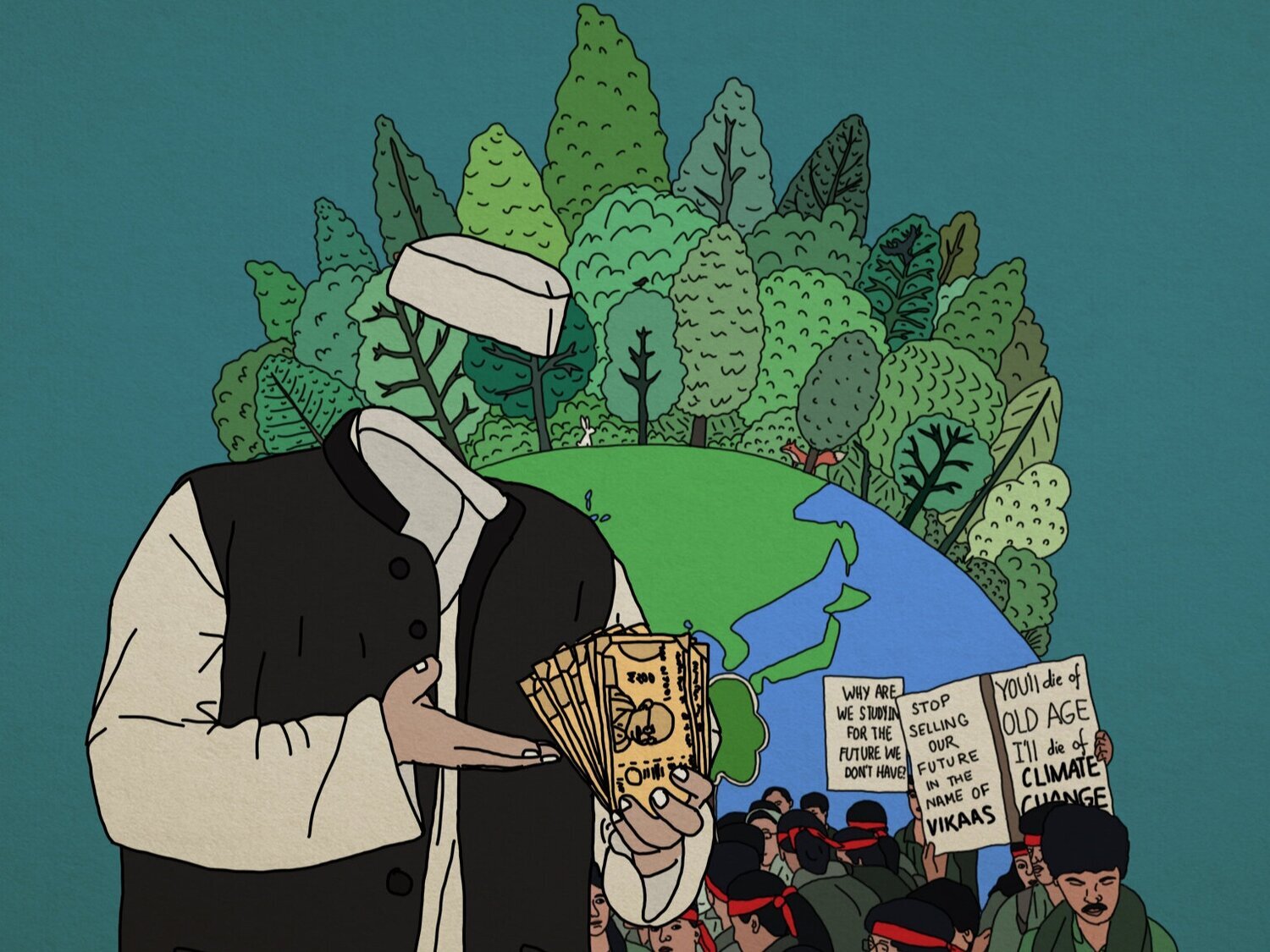
Climate Crisis in South Asia.
Issue 4. Summer 2019
Numerous reports have documented South Asia’s unique vulnerability to the global climate crisis, as a region historically reliant on a monsoon cycle and rivers, and where one-fourth of the world’s population faces sharply declining access to clean air, food, and water. While climate policy features high on the agenda of multiple South Asian governments, there has been little progress on the ground, and deals with global capital for big “development” continue unabated.
Baba Jan and his comrades, Pakistan’s first climate prisoners, have led the charge for climate justice, ecological protection, and self-determination for over a decade.
As “Green Growth” gains popularity among a range of political actors, a critique of the agenda’s growing currency in Pakistan and its worrying alliance with capitalist “development”.
By rendering it a “technical problem”, Pakistan’s “greening” initiatives only exacerbate the country’s environmental crisis.
In tribal India, violence against the environment and women are connected and part of the country’s dispossession-driven capitalism.
Indian conglomerates rushing to invest in renewable energy obscure dirtier practices of ecological damage and labour injustice.
Millenial-led environmental movements in India fall prey to imitating their Western counterparts. If environmentalism is to have any success in the country, we need a more vernacular environmentalism.
A GND which fails to challenge the hegemony of growth-led development perpetuates the exploitation of the Global South and will be unable to prevent global ecological social collapse.
Without accounting for globalized production, a Green New Deal in the Global North will merely spur the imperialist quest for cheaper resources and labour to satisfy “eco-friendly” consumption.
Sri Lanka's environmental progress depends on its treatment of its minority Tamils, who have suffered for decades under majoritarian rule
Lahore’s terrible air quality has prepared the ground for the novel coronavirus to do unspeakable amounts of harm. In coming out of this crisis, we must insist that the city’s deadly air pollution be cleaned up.











How Sri Lanka’s decades-long civil war lives on — in the soil, on the land, and within human and non-human animals.